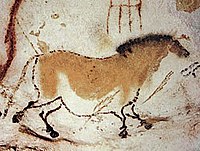
Photo from wikipedia
At its birth, American environmental history had strong connections with intellectual history. Books such as Roderick Nash's Wilderness and the American Mind and Donald Worster's Nature's Economy made the rise… Click to show full abstract
At its birth, American environmental history had strong connections with intellectual history. Books such as Roderick Nash's Wilderness and the American Mind and Donald Worster's Nature's Economy made the rise of preservationist and ecological thinking central to the field's early identity. But during the last several decades, as intellectual historians have engaged in their own soul-searching, American environmental historians retreated from engagement with intellectual history in favor of a “cultural turn.” In some ways, this retreat was surprising, because environmental historians became more circumspect about the very approaches that intellectual historians were questioning in their own scholarly practices: whether we could generalize from elite sources, disengage ideas from their social or cultural contexts, separate out a distinct intellectual realm and its exemplary intellects from histories of popular knowledge, or locate such a thing as an “American mind.” The second generation of American environmental historians continued to study environmental ideas, of course, but with less willingness to venerate canonical environmental thinkers and more interest in how American ideas of nature were socially and culturally constructed. As environmental historians became more critical of environmentalist ideas—finding in them signs of class position, racial formation, consumer status, and uncritical borrowings from science—we tended to become suspicious of the realm of ideas in general. Despite these parallels within our fields, the moment compelled environmental historians to turn away from intellectual history. One sad result is that environmental historians do not seem to have stayed abreast of intellectual historiography. Another, if my cursory review of this journal's recent tables of contents is any indication, is that environmental topics seem peripheral to the field of intellectual history. For the sake of both fields, it's time to restore the fragmented habitats that have isolated our subdisciplines.
Journal Title: Modern Intellectual History
Year Published: 2021
Link to full text (if available)
Share on Social Media: Sign Up to like & get
recommendations!